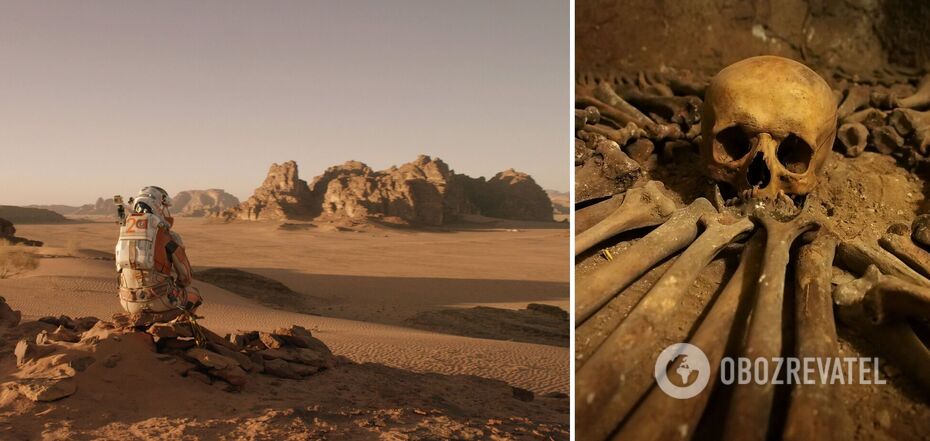Life
Death is only the beginning: what happens to a person who dies during a flight to Mars
Although death remains an extremely tragic event for people, in a sense it has become an everyday occurrence that everyone will face one way or another. But this is true if we are talking about the death of a person on Earth. When it comes to death in space or on other planets, it's hard to imagine how much more complicated things are.
Emmanuel Urquieta, professor of space and emergency medicine at Baylor College of Medicine (USA), spoke about how things will work in the era of space travel in The Conversation.
He notes that there is no doubt that sending people into space is an extremely complex and dangerous business, so it is necessary to develop scenarios in case of death or loss of life of crew members.
Since the 1960s, when mankind began exploring space, 20 people have been officially reported dead - 14 in the NASA space shuttle tragedies of 1986 and 2003, three astronauts died during the Soyuz 11 mission in 1971, and three more astronauts died in a fire on the Apollo 1 launch pad in 1967.
Urquieta notes that given the difficulty of human spaceflight, "it's actually surprising how few people have died so far."
But humanity is preparing to send people to the Moon again in the coming years, and by the end of the decade to send a mission to Mars, and commercial spaceflight is also becoming routine, so everything makes us think about what happens to the body when someone dies in space.
As the professor explains, if someone were to die during a mission in low Earth orbit - for example, aboard the International Space Station - the crew could return the body to Earth in a capsule within hours.
If the death occurred during a mission on the Moon, the body could be returned to Earth in a few days. According to the scientist, NASA has detailed protocols for such cases.
But a completely different situation will arise if someone dies during a 9-month journey to Mars, which is almost 483 million kilometres away!
"In that case, the crew probably won't be able to turn around and go back. Instead, the body will probably return to Earth with the crew at the end of the mission, which will happen in a few years," the professor believes.
According to him, the body would most likely have to be stored in a separate chamber or a special bag for the entire time. The stable temperature and humidity on the spacecraft would theoretically help preserve the body.
However, Urquieta notes, things get more complicated if someone goes into space without a spacesuit or to the surface of the planet.
"The astronaut would die almost instantly. The loss of pressure and the effects of the space vacuum would make it impossible to breathe, and the blood and other body fluids would boil," the professor emphasises.
Moreover, death on the Moon and Mars would be almost the same: our satellite has no atmosphere, while the red planet has a very thin atmosphere with no oxygen. So the result would be similar to spacewalking: suffocation and blood boiling.
The professor also explains that in the event of death on Mars, there is no question of burial or cremation.
"Cremation is undesirable; it requires too much energy that the surviving crew needs for other purposes. Burial is not a good idea either. Bacteria and other organisms from the body can contaminate the Martian surface," the scientist explained.
Therefore, he said, "most likely" the crew will keep the body in a special bag until it can be returned to Earth.
Earlier, OBOZREVATEL also talked about the scientists' forecast of when people will be able to colonise Mars and other planets.
Subscribe to OBOZREVATEL's Telegram, Viber and Threads channels to keep up with the latest developments.



























